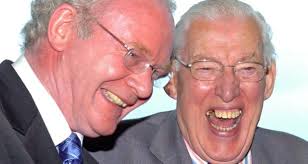Recently, I’ve given some talks on the role of the lobbyist.
I give the talk through the lens of the practitioner.
I decided to put this concise version online so I can find it easily in future.
I personally don’t like powerpoint. But, I accept most people need it. So, in a concession to modernity, I use an image and speaking points.
A Common View
The common view of the lobbyist is not a positive one.



The real heroes in the movie, Lincoln, are the lobbyists. They helped get the 13th Amendment, the ban on slavery, passed. You may not like their methods, which at the time were mainstream, but without them, the amendment would not have happened.
My View
My view of the role of the lobbyist is different from popular culture.
I say this as someone who has worked for most sides of the table – all except for a national government.



A good lobbyist will be able to look into the crystal ball and predict events, or at least votes. They’ll be guided by experience, gut feeling, and detailed analysis of historic votes on the issue. The latter can be divulged by the excellent VoteWatch.
Two colleagues used to complain of my ability to predict the outcome of votes on fisheries matters. They assumed I had unholy powers of persuasion or more occult powers. Sadly, 20 years following the area, helped me look for signs that the political tea-leaves were moving in one direction or the other. Gut feeling is an accurate guide. It’s important to listen to it.

A good lobbyist needs to be a honest broker between competing interests. They are not a hit man for hire. Rather, they are a peacemaker, who can bring understanding to all parties. Playing a zero sum game usually leads to little or nothing for all sides. An enlightened approach is to foster understanding and compromise.
It worked for the late Revd. Ian Paisley and Martin McGuiness. Comeptiting interests learned to work together on some things.

A lobbyist needs to guide you through the legislative and policy making process. The journey and map(s) you need to master are many.
Where was the action in 2016
2016 EU legislation and decisions output
Ordinary / co decision proposals
Proposed 116
Adopted 67
Secondary legislation adopted
RPS measures 108
Delegated Acts 140
Implementing Acts 1448
Most people focus on the big picture “legislation”. As these figures show, this is not where the ”action’ is. It is rational – at the very least – to be able to know: ordinary, secondary, decision making specific to your area, policy development and framing. Too many lobbyists focus on one or two areas and steps.
Yet, in 2006 in my own area – chemicals – ECHA , completed:
Substance evaluations (concluded) 46
Substance evaluation decisions – requesting new information 26
Substance evaluations started 39
Substance evaluations 2012-2016 182
SVHC substances included on Candidate List 173
SHVC added to candidate list 5
Proposals by MS for SHVC to be added to candidate list 5
(Commission did not act on 5)
Recommendation for SHVC to authorisation list (annex XIV) 9
Authorization request 77
Commission decisions restrictions 4
RAC Opinion CLP 108
RAC Opinions CLP PPP/Biocides 129
Many important decisions are taken by “agencies”. Above is a snapshot of ECHA in 2016. I suspect that other agencies have a similar output. Politicians and officials are reluctant to second guess the opinions of expert committees and agencies. And, whilst political scrutiny of opinions is available, you need to be involved from the very begining.
Some personal thoughts
People, process, policy, and ideas matter. Political change does not happen by accident. If you look behind events, you’ll find orchestrated actions by interests brought it about.
You need to understand the process for policy development and law making. All you need to do is step in at the right time, present the right case to the right person(s), in the right way. Most people step in too late, with long briefings, and not raise the points the decision maker/influence wants to know about. If you don’t know the process, or ignore it, your chances are at best low.


Very good…. again. Thank you